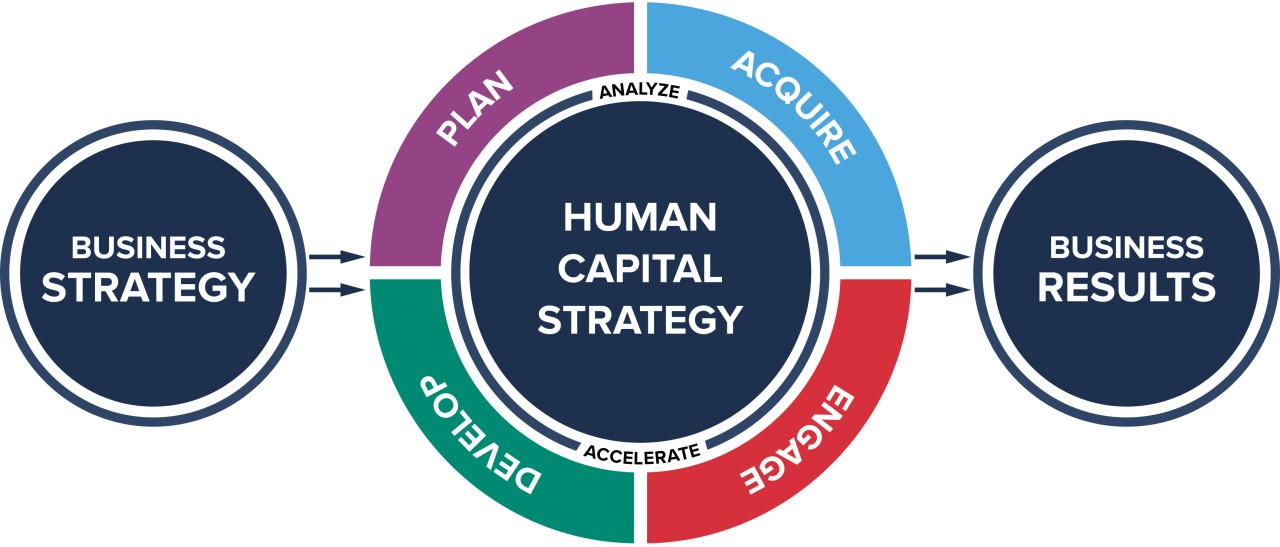Pakistan's logistics and supply chain sector has been gaining recognition for its exceptional manpower recruitment in logistics, which is attributed to a combination of strategic advantages, government support, and technological progress. This article explores the factors contributing to Pakistan's reputation as a hub for logistics and supply chain excellence, particularly in the context of its growing IT industry and the challenges and opportunities it faces in the digital economy.
Key Takeaways
- Pakistan's strategic location as a gateway to key trade routes, along with government initiatives like the Pakistan Software Export Board (PSEB), provide a foundation for its strong logistics and IT sectors.
- Competitive cost structures and a highly skilled workforce make Pakistan an attractive destination for IT outsourcing, contributing significantly to the country's GDP and job market.
- The country is emerging as a global IT outsourcing hub, with growth in software exports and the expansion of business process outsourcing (BPO) services.
- Investments in digital infrastructure and the adoption of advanced technologies are driving improvements in Pakistan's supply chain efficiency, despite facing challenges like skill gaps and infrastructure needs.
- International recognition, as evidenced by Pakistan's position in global logistics indexes and its competitive standing with regional counterparts, underscores the country's potential in the logistics and IT sectors.
Strategic Geographical Advantage
Pakistani Logistics Manpower in Saudi Arabia
Pakistan's strategic location serves as a pivotal gateway to some of the most important global trade routes. Nestled at the crossroads of South Asia, Central Asia, and the Middle East, it provides a critical transit point for regional and international trade flows. Pakistan's geographical advantage is not just a matter of proximity; it is also about the potential for economic leverage in a highly competitive global market.
The country's advancement in the international logistics opportunities metric, where it recently moved up to rank 33rd, is a testament to its growing capacity to facilitate cross-border logistics operations. This metric is crucial as it measures both internal and external demand for trade-intensive logistics services. Here's how Pakistan compares with its neighbors in terms of logistics opportunities:
| Country | International Logistics Opportunities Rank |
|---|---|
| Pakistan | 33 |
| China | 1 |
| India | 2 |
With the world becoming more interconnected, the logistics industry in Pakistan will continue to be influenced by global trade dynamics. Strategic partnerships and investments in infrastructure are essential to harness this geographical advantage fully. As neighboring countries like India foster growth through initiatives like Free Trade Warehousing Zones, Pakistan can look to similar models to bolster its position as a central hub in the logistics and supply chain sector.
Regional Connectivity and Economic Corridors
Pakistan's commitment to enhancing regional connectivity is evident through its active participation in developing economic corridors. These corridors are not just trade routes but are transformative projects that integrate transportation, logistics, and economic development strategies. The establishment of Special Economic Zones (SEZs) is a testament to this commitment, aiming to bolster various sectors including logistics.
The SEZs, such as King Abdullah Economic City and Ras Al Khair, are strategically positioned to leverage Pakistan's geographical advantage. They serve as hubs for sustainable business growth, focusing on industries like the automobile supply chain and consumer goods, which are integral to a robust logistics and supply chain sector.
Moreover, Pakistan's improved ranking in international logistics opportunities reflects its growing capacity to facilitate cross-border logistics operations. This progress is a clear indicator of the country's potential to optimize logistics and transportation locations, in alignment with global logistics hubs.
Competitive Edge in Cost and Skills
Government Support for Pakistani Labor
Cost-Effectiveness of Pakistani IT Services
Pakistan's IT sector has become a beacon of cost-effectiveness, attracting international companies seeking to outsource services. The strategic use of competitive pricing has not only bolstered the nation's economic growth but also positioned it as a formidable player in the global IT outsourcing market. This cost advantage is particularly evident in the relationship between Pakistan and countries like Saudi Arabia, where the demand for IT services is met by a robust overseas recruitment agency in Pakistan for Saudi Arabia.
The table below illustrates the comparative cost advantage of Pakistani IT services:
| Service Offered | Average Cost in Pakistan (USD) | Average Global Cost (USD) |
|---|---|---|
| Software Development | 25/hr | 50/hr |
| BPO Services | 15/hr | 30/hr |
| Digital Marketing | 20/hr | 40/hr |
These figures underscore the significant savings that can be achieved by partnering with Pakistani IT firms. The country's commitment to fostering a skilled workforce and facilitating technology transfer has further enhanced its appeal to global markets, making it a go-to destination for cost-effective IT solutions.
Highly Skilled Workforce in IT and Logistics
Pakistan's logistics and supply chain sector is bolstered by a highly skilled workforce adept in modern logistics technologies. The professionals in this sector are well-versed in the use of advanced logistics technologies, such as warehouse management systems, GPS tracking, and sophisticated supply chain software, which are essential for maintaining efficiency and competitiveness in the global market.
The education and training of logistics professionals in Pakistan have kept pace with the evolving demands of the industry. This has resulted in a workforce that is not only technically proficient but also adaptable to the increasing number and complexity of customer demands. As businesses face more intricate and delicate supply chains, the role of third-party logistics providers (3PLs) becomes crucial, and Pakistan's workforce is well-equipped to handle these challenges.
Here is a snapshot of the critical components of the logistics sector where Pakistan's workforce excels:
- Transportation: Ensuring timely and efficient movement of goods.
- Warehousing: A key link in the logistics chain, accounting for a significant portion of logistics value.
- Distribution: Critical for delivering products to markets effectively.
The strategic focus on these areas has enabled Pakistan to climb in international logistics rankings, reflecting the country's capacity to facilitate cross-border logistics operations and meet the demands of a sophisticated market.
Investments in Digital Infrastructure
Pakistan's commitment to enhancing its digital infrastructure is a testament to the nation's recognition of the transformative power of information technology (IT). Investments in digital infrastructure are pivotal for the logistics and supply chain sector, enabling the integration of advanced technologies such as blockchain, which has shown to significantly improve efficiency and transparency in supply chain management.
The government's strategy includes establishing technology parks and special economic zones tailored for IT, alongside incentives to attract foreign investment. These efforts are complemented by initiatives like the Prime Minister's Digital Pakistan, aimed at enhancing digital literacy and bridging the digital divide. Such investments are not only crucial for the IT sector but also have far-reaching implications for healthcare, education, and socio-economic development.
Despite the progress, challenges such as the digital divide and uneven access to technology persist, highlighting the need for continued investment and capacity building. As Pakistan navigates the complexities of the digital age, the logistics sector stands to benefit greatly from the nation's drive towards a more connected and technologically advanced future.
Adoption of Advanced Technologies in Supply Chain
The logistics sector in Pakistan is rapidly embracing advanced technologies to enhance supply chain management. The integration of Supply Chain Execution (SCE) applications is a testament to this, promoting transparent supply chains and seamless information sharing. Such technological advancements are pivotal in meeting the complex and growing demands of customers, which is a significant driver for the industry.
In the context of international business and its swift transformation, the role of Information and Communication Technology (ICT) cannot be overstated. It is reshaping trading patterns and facilitating the development of integrated logistics. The adoption of technologies like blockchain and the rollout of 5G networks are further revolutionizing the sector, offering secure, fast, and reliable solutions that foster trust and reduce fraud.
To illustrate the impact of technology on supply chain efficiency, consider the following key performance indicators (KPIs) that are commonly used to measure success:
- Customer satisfaction levels
- Cost reduction in direct materials and administrative expenses
- Streamlining of internal production processes
- Reliability and efficiency of deliveries
By focusing on these KPIs, Pakistan's logistics sector is not only improving its operational capabilities but also ensuring economic benefits for the businesses it serves.
Challenges and Opportunities for Growth

Image Source: dojobusiness.com
Addressing Infrastructure and Skill Gaps
To harness the full potential of Pakistan's logistics and supply chain sector, addressing infrastructure and skill gaps is paramount. Investment in digital education infrastructure and capacity building is essential to overcome the digital divide and uneven access to technology. This includes enhancing internet connectivity, particularly in rural areas, and upgrading the existing logistical infrastructure to meet the demands of a modern economy.
The IT sector, while making significant strides, still faces challenges such as a shortage of skilled professionals and inadequate infrastructure. To mitigate these issues, a multi-faceted approach is necessary:
- Strengthening regulatory frameworks to ensure cybersecurity and protect intellectual property rights.
- Developing digital literacy programs to equip the workforce with necessary IT skills.
- Encouraging public-private partnerships to invest in technological advancements.
These steps will not only address current limitations but also open doors for innovation and expansion, positioning Pakistan as a competitive player in the global logistics and IT outsourcing markets.
Potential for Innovation and Expansion
Pakistan's logistics and supply chain sector is on the brink of a transformative leap, with the potential for innovation and expansion being more tangible than ever. The country is fostering a dynamic ecosystem of innovation, which is crucial for staying competitive in the global market. This ecosystem is not only about adopting new technologies but also about nurturing a culture that encourages creative problem-solving and entrepreneurial thinking.
The workforce, especially the youth and entrepreneurs, are at the heart of this potential. They seek opportunities that provide personal and professional growth, work that aligns with their values, and a strong emphasis on work-life balance. For startups and established companies alike, this means creating environments that foster technological integration and innovation.
To capitalize on these opportunities, Pakistan must continue to invest in areas that unlock new possibilities, such as mobile applications, smart cities, and connected devices. By doing so, the country can position itself as a regional hub for technological advancement and digital transformation, paving the way for a robust logistics and supply chain sector that is both innovative and expansive.
International Recognition and Rankings

Pakistan's Position in Global Logistics Indexes
Pakistan's logistics and supply chain sector has shown a promising trend in global logistics indexes, reflecting the country's growing capabilities and potential in this field. In the Agility's Global Logistics Index, Pakistan has secured the 26th position among emerging South Asian economies, indicating a competitive edge in the region. This ranking underscores Pakistan's progress in facilitating cross-border logistics operations and catering to international trade demands.
According to the World Bank's Logistic Performance Index (LPI), which assesses countries on various logistics-related components, Pakistan ranked 68th. While this position highlights areas for improvement, it also points to the significant strides the country has made in enhancing the efficiency of its logistics services and infrastructure.
The following table summarizes Pakistan's rankings in key logistics indexes:
| Index | Pakistan's Ranking |
|---|---|
| Agility's Global Logistics Index | 26th |
| World Bank's Logistic Performance Index (LPI) | 68th |
These rankings are instrumental in attracting logistics providers, freight forwarders, and investors, as they reflect the country's readiness and potential for growth in the logistics and supply chain sector.
Comparative Analysis with Regional Competitors
Pakistan's logistics sector stands out in the region due to its strategic approach to logistics and supply chain management. This approach is essential for maintaining a competitive advantage in the global market, where the organization and integration of supply chain activities are crucial.
When comparing Pakistan's logistics performance with regional competitors, it's evident that countries with lower logistics performance incur higher costs. These are not just due to transportation but also stem from unreliable supply chains, which are significant barriers to global value chain integration.
Here's a brief comparative overview of key logistics performance indicators:
| Country | LPI Rank | Customs | Infrastructure | International Shipments | Logistics Quality & Competence | Tracking & Tracing | Timeliness |
|---|---|---|---|---|---|---|---|
| Pakistan | TBD | TBD | TBD | TBD | TBD | TBD | TBD |
| Regional Competitor 1 | TBD | TBD | TBD | TBD | TBD | TBD | TBD |
| Regional Competitor 2 | TBD | TBD | TBD | TBD | TBD | TBD | TBD |
Note: LPI (Logistics Performance Index) ranks are placeholders and should be updated with actual data.
Collaborations and Partnerships

International Collaborations in IT and Logistics
Pakistan's logistics and IT sectors are increasingly engaging in international collaborations, which are pivotal for the country's integration into the global supply chain. These partnerships are enhancing Pakistan's capabilities in managing complex logistics operations and expanding its IT services.
The evolution of Third Party Logistics (3PL) and the emphasis on Supply Chain Management (SCM) have necessitated the formation of strategic networks. Pakistani companies are now part of these networks, offering competitive and high-quality services to the global market. The 2016 20th Annual Third Party Logistics Study highlights the success of such collaborations, with a significant majority of both shippers and 3PL providers reporting improved logistics effectiveness through innovative solutions.
Pakistan's improvement in international logistics rankings is a testament to these efforts. The country's advancement in the logistics opportunities metric indicates a growing capacity to facilitate cross-border logistics operations. Below is a comparison of Pakistan's ranking with its regional competitors:
| Country | International Logistics Opportunities Ranking |
|---|---|
| Pakistan | 33 |
| China | 1 |
| India | 2 |
The table reflects Pakistan's competitive position and underscores the potential for further growth through continued international collaborations.
Strategic Alliances with Global Companies
Pakistan's logistics and supply chain sector is increasingly forming strategic alliances with global companies, enhancing its global competitiveness. These partnerships are pivotal for integrating Pakistani businesses into worldwide networks, ensuring an efficient and high-quality response to global market demands.
The collaborations span various services, including Global Business Process Outsourcing (BPO), Global Mobility, Executive Search, and HR Management Solutions. They facilitate the sharing of supply chain expertise and economies of scale, which are crucial for delivering optimal customer satisfaction and managing intricate global supply chains.
Key Performance Indicators (KPIs) are often established to measure the success of these alliances:
- Customer satisfaction
- Cost minimization
- Supply chain efficiency
- Order fulfillment accuracy
Through these strategic partnerships, Pakistan is not only re-engineering its distribution networks to meet global market demands but is also positioning itself to play a more significant role in the international logistics and IT outsourcing landscape.
Investment in Human Capital
Image Source: linkedin.com
Fostering a Tech-Savvy Workforce
Pakistan's dedication to fostering a tech-savvy workforce is evident in its strategic approach to education and professional development. Recognizing the intrinsic connection between Generation Z and technology, companies in Pakistan are creating environments where technological innovation is not just supported but is a core aspect of their operations and culture.
Key traits of the tech-savvy nature of Gen Z in the workplace include:
- Quick adaptability to new software and tools
- A preference for jobs that offer technological engagement
- Effective use of social media for professional purposes
- Expectation for workplaces to provide advanced technological resources
By incorporating tech innovations responsibly, Pakistani organizations are not only attracting Gen Z talent but are also preparing for the global talent shortage. This balance between technology and personal touch is crucial in cultivating a dynamic and future-ready workforce that can lead the logistics and supply chain sector to new heights.
Educational Initiatives in IT and Logistics
Pakistan's educational landscape is undergoing a significant transformation, thanks to the integration of IT into learning environments. E-learning platforms, digital classrooms, and online resources have made education more accessible, especially for students in remote areas. This democratization of learning is pivotal for nurturing a tech-savvy workforce capable of driving the logistics and supply chain sector forward.
The country's focus on IT and logistics education is evident in the variety of training programs and courses available. For instance, the Economic Affairs Division is offering a training course on "Public Private Partnerships; Infrastructure Projects Development" under the Singapore cooperation Programme. Such initiatives are crucial for equipping professionals with the knowledge and skills needed to excel in the evolving global business landscape, where integrated logistics and ICT are reshaping trading patterns.
To further illustrate the commitment to educational development in IT and logistics, here's a snapshot of key initiatives:
- Virtual University of Pakistan's online courses
- Specialized training programs like the one on Public Private Partnerships
- Workshops and seminars on advanced logistics and supply chain management
- Collaborations with international institutions for knowledge exchange
These efforts are not only reducing direct material and administrative costs but also streamlining internal production processes, thereby enhancing the efficiency of the supply chain to meet market demands.
The Road Ahead for Pakistan's Logistics Sector
Leveraging IT for Socio-Economic Development
The integration of Information Technology (IT) in Pakistan is not just a catalyst for economic growth but also a transformative force for social advancement. The proliferation of digital services has enabled broader access to information, facilitating civic engagement and the expansion of essential services like education and healthcare, especially in remote regions.
Recognizing the strategic importance of IT, the government has implemented various policies to foster the sector's growth. These include the establishment of technology parks, special economic zones, and incentives for foreign investment. Moreover, initiatives such as the Prime Minister's Digital Pakistan aim to enhance digital literacy and bridge the digital divide.
By capitalizing on IT, Pakistan is poised to address socio-economic challenges and drive inclusive development. However, the journey is not without its hurdles, such as digital inequality and cybersecurity threats. Overcoming these challenges will require continued investment in digital infrastructure, human capital, and regulatory frameworks to fully harness the potential of IT for socio-economic progress.
Navigating Digital Transformation Challenges
As Pakistan's logistics sector embarks on the digital transformation journey, it faces several challenges that must be addressed to ensure a smooth transition. Siloed operations often hinder the flow of information and collaboration, which is crucial in a digitized supply chain environment. To overcome this, fostering a culture of integration and data sharing across departments is essential highlighting the importance of Digital Transformation in Logistics for optimizing operations and enhancing competitiveness..
Effective data management and security are paramount in the digital age. Logistics companies need to implement robust cybersecurity measures and data governance policies to protect sensitive information and maintain customer trust. Moreover, the lack of process automation can lead to inefficiencies and increased costs. Investing in automation technologies can streamline operations and enhance productivity.
Another significant hurdle is the dependency on legacy systems that are not compatible with new technologies. Upgrading these systems is a critical step towards achieving digital fluency. However, it requires careful planning and execution to minimize disruptions. The table below outlines the key challenges and potential strategies for navigating them:
| Challenge | Strategy |
|---|---|
| Siloed Operations | Promote cross-departmental collaboration |
| Data Management and Security | Implement cybersecurity measures |
| Lack of Process Automation | Invest in automation technologies |
| Legacy System Dependency | Plan systematic upgrades |
By addressing these challenges with strategic measures, Pakistan's logistics sector can harness the full potential of digitalization and maintain its competitive edge in the global market.
As Pakistan's logistics sector continues to evolve, the need for innovative and efficient logistics solutions becomes ever more critical. At the forefront of this transformation is our commitment to providing top-tier logistics and supply chain services. We invite you to explore the road ahead with us and discover how our tailored solutions can propel your business forward. Visit our website to learn more about our services and how we can support your logistics needs. Let's navigate the future of logistics together!
Conclusion
In conclusion, Pakistan's logistics and supply chain sector stands out for its robust manpower, underpinned by a vibrant IT industry and a young, tech-savvy population. The country's IT sector, with its significant contribution to GDP and exports, showcases Pakistan's potential to excel in logistics through technological innovation and skilled human resources. Despite facing challenges such as infrastructure limitations and the need for regulatory improvements, Pakistan's strategic partnerships and entrepreneurial spirit signal a promising future. With continued investment in digital infrastructure and human capital, Pakistan is poised to harness the transformative power of IT, not only to advance its logistics sector but also to drive broader socio-economic development and global competitiveness.
Frequently Asked Questions
What strategic advantages does Pakistan's geographical location offer for logistics?
Pakistan's strategic location serves as a gateway to key trade routes, providing access to various regional markets and facilitating connectivity through economic corridors. This geographic advantage is pivotal for the logistics and supply chain sector.
How does the Pakistan Software Export Board (PSEB) support the IT and logistics sector?
The PSEB facilitates trade relations, market access, and technology transfer between Pakistan and global entities. It plays a crucial role in integrating Pakistan's IT industry into the global economy through various initiatives and policy support.
What makes Pakistani IT services cost-effective?
Pakistani IT services are cost-effective due to the competitive advantage of lower operational costs and the availability of a skilled workforce, which attracts international companies for outsourcing IT services.
How is Pakistan emerging as a global IT outsourcing hub?
With significant growth in software exports and the expansion of Business Process Outsourcing (BPO), Pakistan is establishing itself as a competitive player in the global IT outsourcing market.
What technological advancements are impacting Pakistan's supply chain sector?
Investments in digital infrastructure and the adoption of advanced technologies are transforming Pakistan's supply chain sector, making it more efficient and integrated with global practices.
What are the main challenges facing Pakistan's logistics sector?
Pakistan's logistics sector faces challenges such as infrastructure gaps, limited access to high-speed internet in rural areas, and a shortage of skilled professionals. Addressing these issues is crucial for sustainable growth.
How does Pakistan rank in global logistics indexes compared to regional competitors?
While Pakistan has shown improvement, it still faces stiff competition from regional counterparts. For instance, in the Agility Emerging Markets Logistics Index, Pakistan stands at the 26th position, with India at 2nd and Bangladesh making strides to improve its logistics strength.
What opportunities exist for Pakistan's IT and logistics sector?
Opportunities for Pakistan's IT and logistics sector include leveraging its young and tech-savvy population, fostering international collaborations, and capitalizing on the growing global demand for IT services to drive socio-economic development.
Tips for Employers: logistics and supplychain recruitment





